Validate
Exercising Hub
The Academy Exercising Hub aims to connect people across government departments, local government, local resilience forums and the voluntary and community sector, and to help individuals to develop the skills they need to conduct exercises in their own organisations.
The Hub’s goals align with those of the UKRA as a whole: to strengthen professionalisation, ensure learning and development opportunities are available to all who need them and to advance a culture of resilience.
In the dynamic environment of public service, the management of risks and the identification of capability gaps are integral to ensuring effective governance and service delivery. Exercising risks involves systematically assessing potential threats and vulnerabilities that could impede the government’s ability to meet its objectives. Capability gaps refer to areas where the current skills, processes, or resources are insufficient to fulfil the government’s mandates efficiently.
This overview aims to outline the core aspects of exercising risks and capability gaps, ensuring a proactive approach towards resilient governance. By fostering collaboration across departments and leveraging robust assessment methodologies, we can enhance our preparedness for challenges and ensure a sustainable operational framework.
What is exercising in resilience?
An exercise is a planned activity that tests how an organisation will respond to an emergency with the goal to improve, or to validate, emergency response plans and procedures. Exercises should support but not replace other forms of training.
You can find out work about exercising and different ways to exercise in the Government’s Exercising Best Practice Guidance (2024). The guidance defines an exercise as “a process to train for, assess, practice and improve performance in an organisation.”
How can exercising help with your organisation’s resilience?
Exercises should have a defined purpose and agreed objectives to be most effective.
Exercises can be used to:
- Evaluate preparedness programmes
- Identify deficiencies in plans and procedures
- Test new plans or procedures
- Clarify roles and responsibilities
- Build strong relationships
- Refine response plans, policies and procedures
Which organisations should exercise?
All organisations should test the effectiveness of their emergency plans by carrying out regular exercises. It’s also vital that organisations ensure that staff involved in the planning for, or response to, an emergency receive the appropriate training.
In addition, training plans should also consider other people who have a role in the emergency plans, such as contractors and civil protection partners.
The plans themselves should explicitly identify the nature and frequency of training and exercising required. The Exercising Best Practice Guide provides more information.

Our Vision for the Academy Exercising Hub
Our vision is for the Academy Exercising Hub to convene organisations, encourage collaboration on exercising across organisational silos and produce and signpost relevant development resources.
By connecting stakeholders to development resources and to one another, the Hub’s goals align with those of the UKRA as a whole: to strengthen professionalisation, ensure learning and development objectives are available to all who need them, and to advance a culture of resilience.
Exercising Resource Library
Explore these resources to help with your exercising plans

Exercise in a Box
Exercise in a Box is a free resource which helps organisations find out how resilient they are to cyber attacks and practise their response.

NCSC Exercising Page
The National Cyber Security Centre’s website provides advice and guidance, including on planning cyber exercises.

VCSEP Exercising
VCS Emergencies Partnership’s website provides a collection of exercises, which organisations can adapt and tailor to their needs.
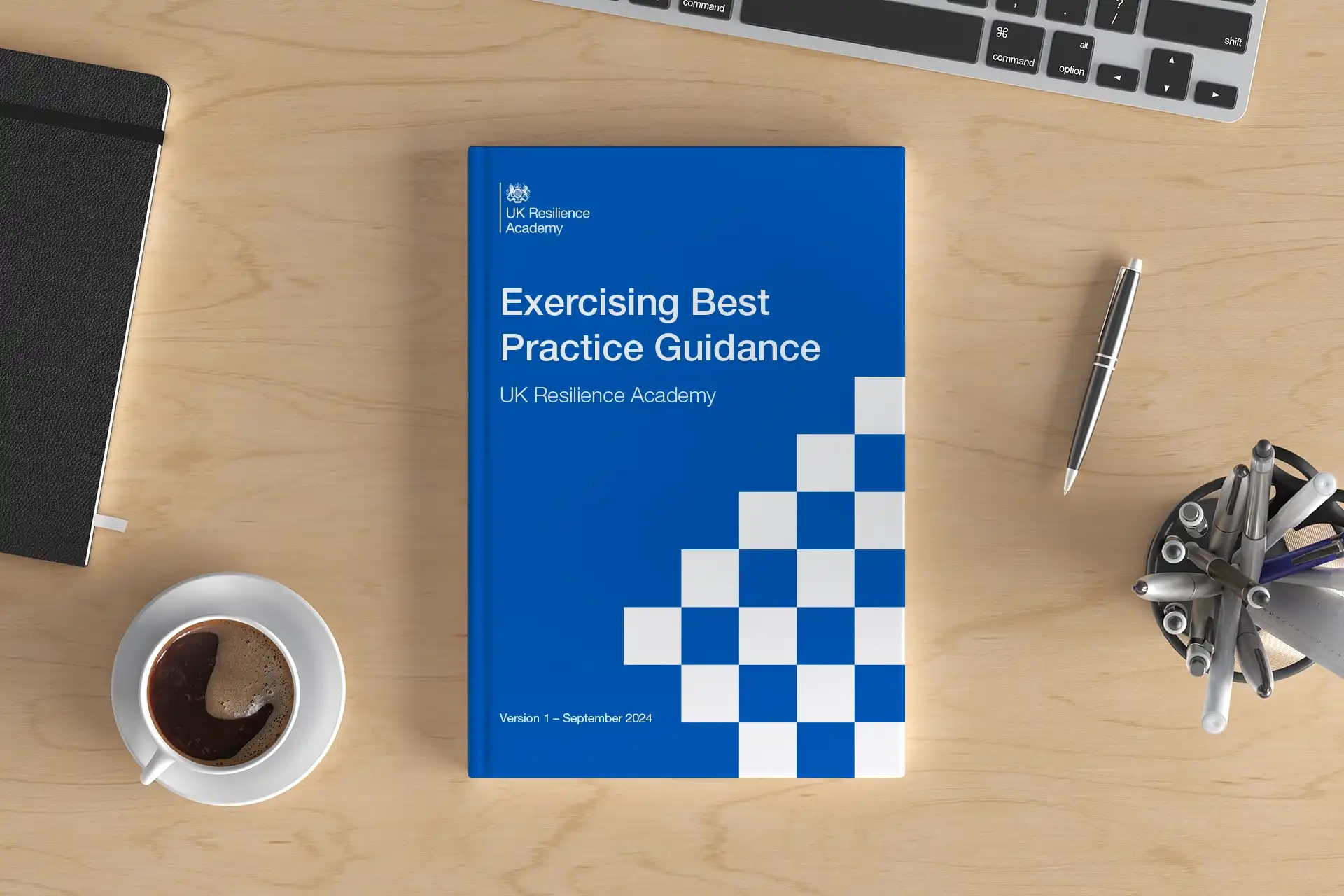
Exercising Best Practice Guidance
Guidance on what local planners need to consider when developing flexible plans for evacuation and shelter.

Lessons Management Best Practice Guidance
Guidance for the identification, prioritsation, implementation, and embedding of lessons from exercises and emergencies
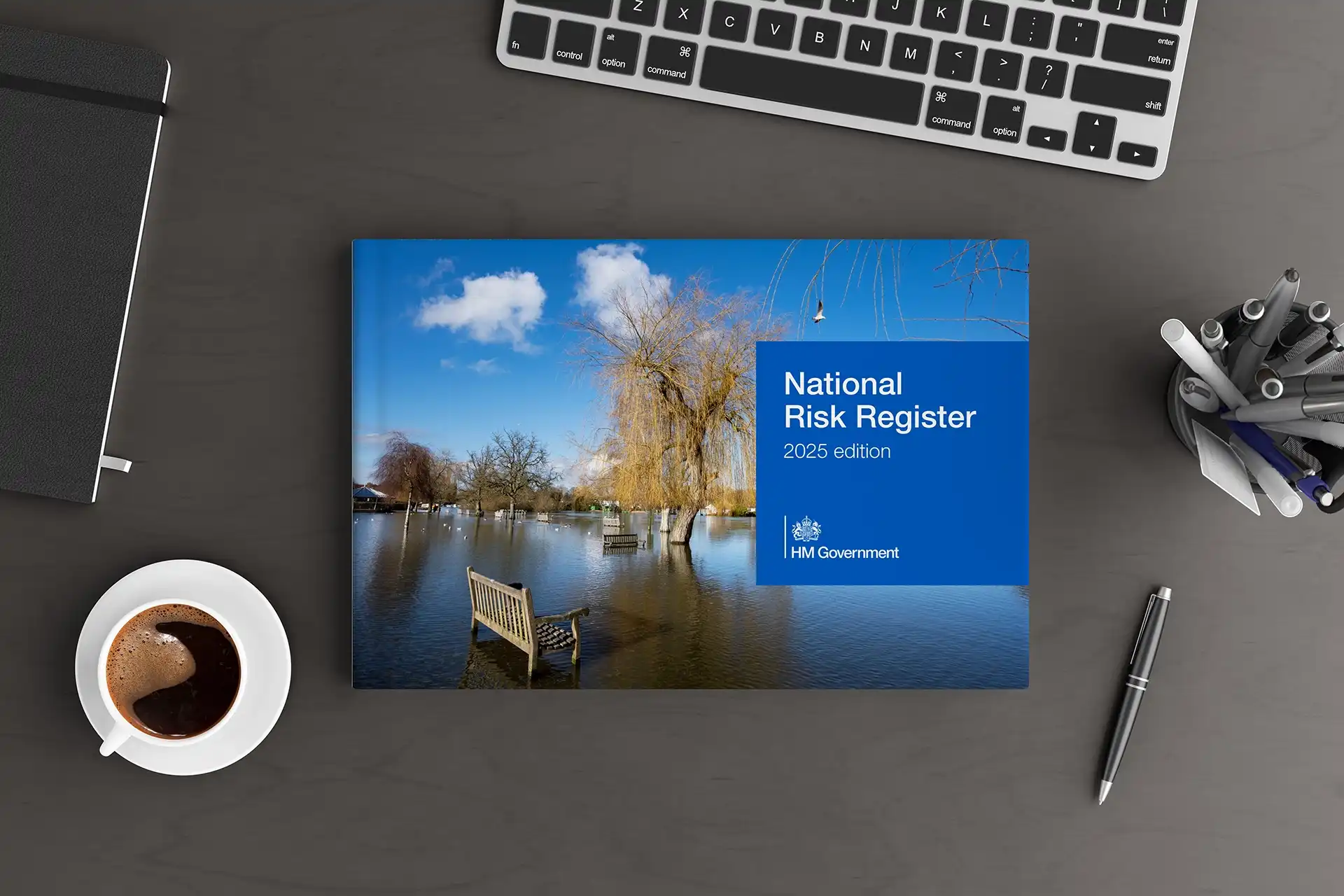
National Risk Register 2025 Edition
The National Risk Register outlines the most serious risks facing the United Kingdom.
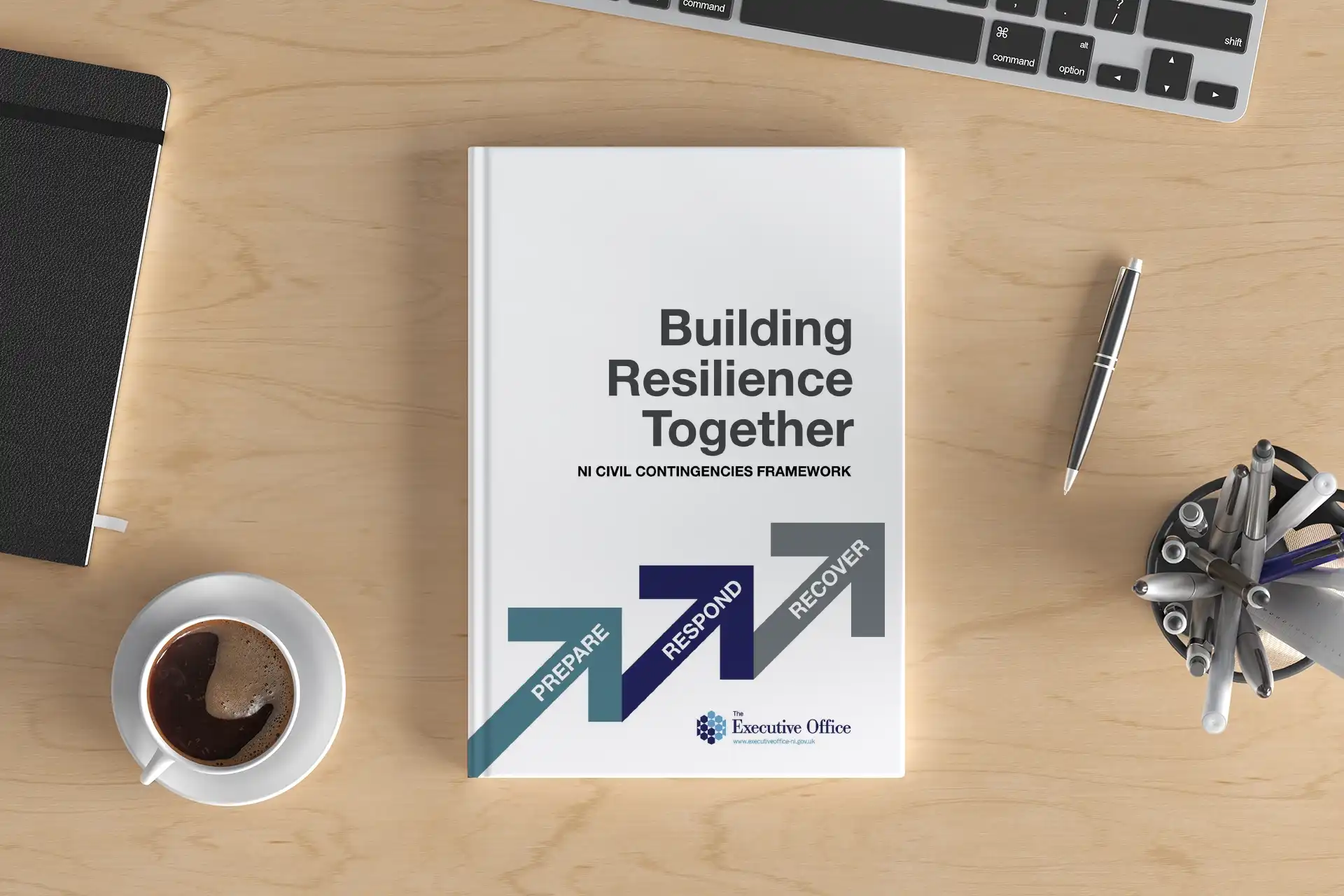
Northern Ireland Civil Contingencies Framework (Revised 2023)
The Northern Ireland (NI) Civil Contingencies Framework sets out NI arrangements for effective Emergency Management.

CONTEST: The UK's Strategy for Countering Terrorism
CONTEST is the UK’s counter-terrorism strategy. It’s based on 4 themes: prevent, pursue, protect and prepare.

FEMA Exercise and Preparedness Tools
The Federal Emergency Management Agency is a federal agency which helps the United States respond to and recover from disasters.

AIDR Knowledge Hub
The Australian Disaster Resilience Knowledge Hub is an open-source platform that supports and informs policy, planning, decision making and contemporary good practice in disaster resilience.

Joint Organisational Learning
JOL (Joint Organisational Learning) Online, which is hosted on Resilience Direct, is the national repository for interoperability, national resilience lessons and notable practice across the UK.
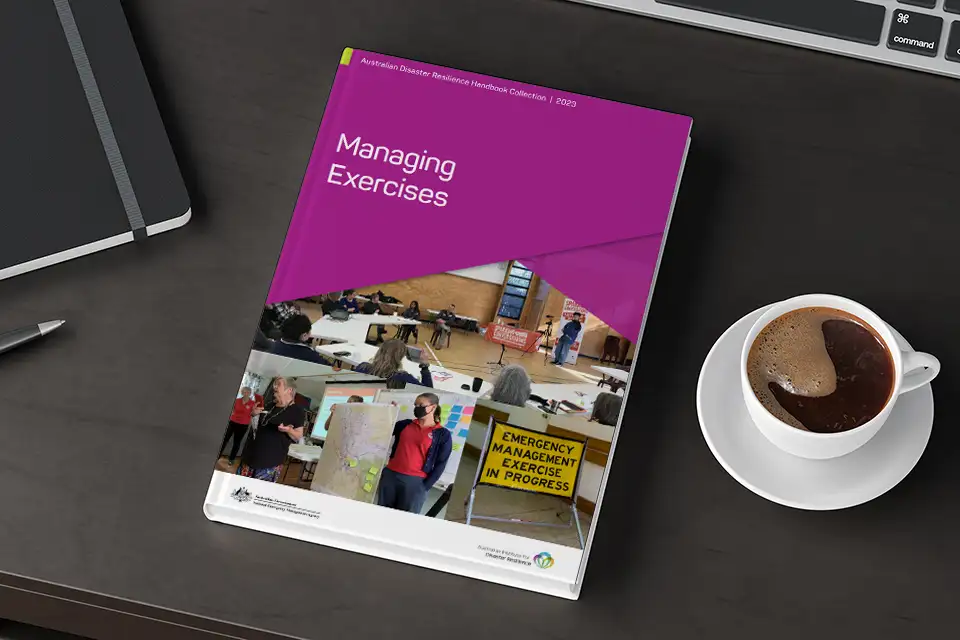
AIDR - Managing Exercises Handbook
The Managing Exercises Handbook is one of a series of handbooks on the Australian Disaster Resilience Knowledge Hub. It provides guidelines for the design, planning, conduct and evaluation of exercises.
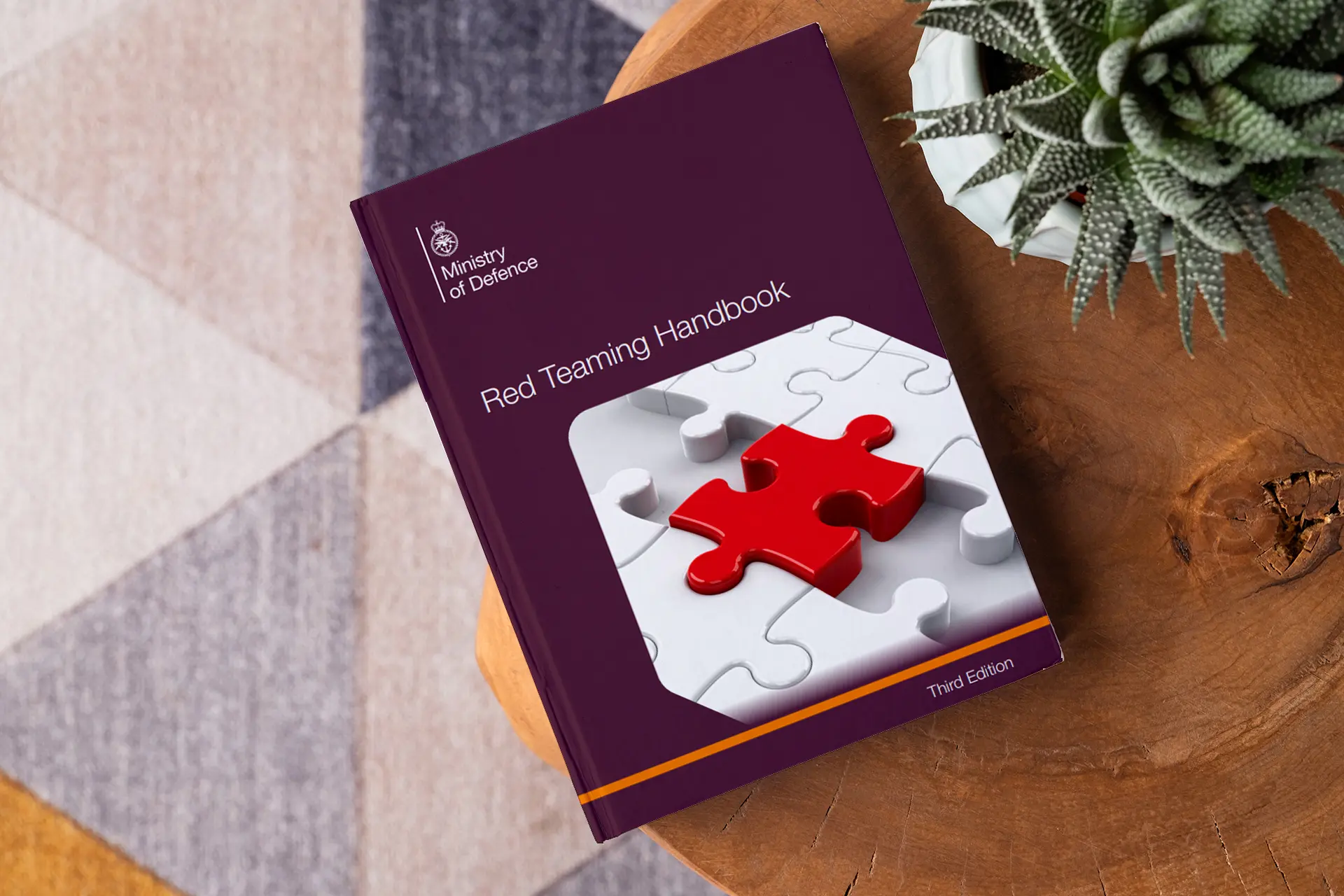
Red Teaming Handbook
A practical ‘hands on’ manual to support civilian and military audiences in the use of Red Teaming techniques

Preparing Scotland Exercising Guidance
Preparing Scotland is a set of national guidance documents to assist Scotland in planning, responding and recovering from emergencies. The purpose of this guidance is to provide a practical tool to assist in the planning, delivery and evaluation of exercises.

Preparing Scotland
Preparing Scotland is a set of national guidance documents to assist Scotland in planning, responding and recovering from emergencies.
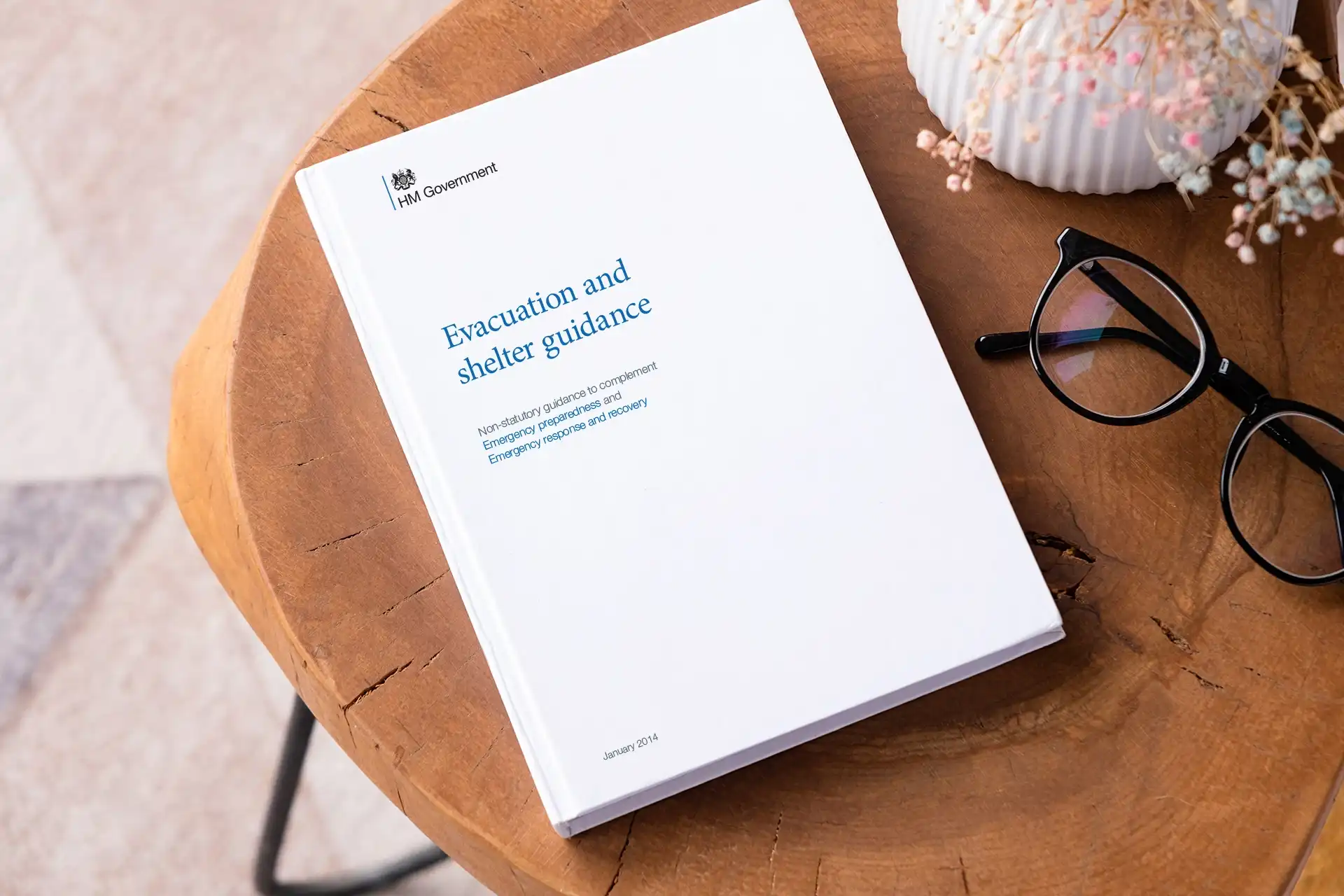
Evacuation and Shelter Guidance
Guidance on what local planners need to consider when developing flexible plans for evacuation and shelter.
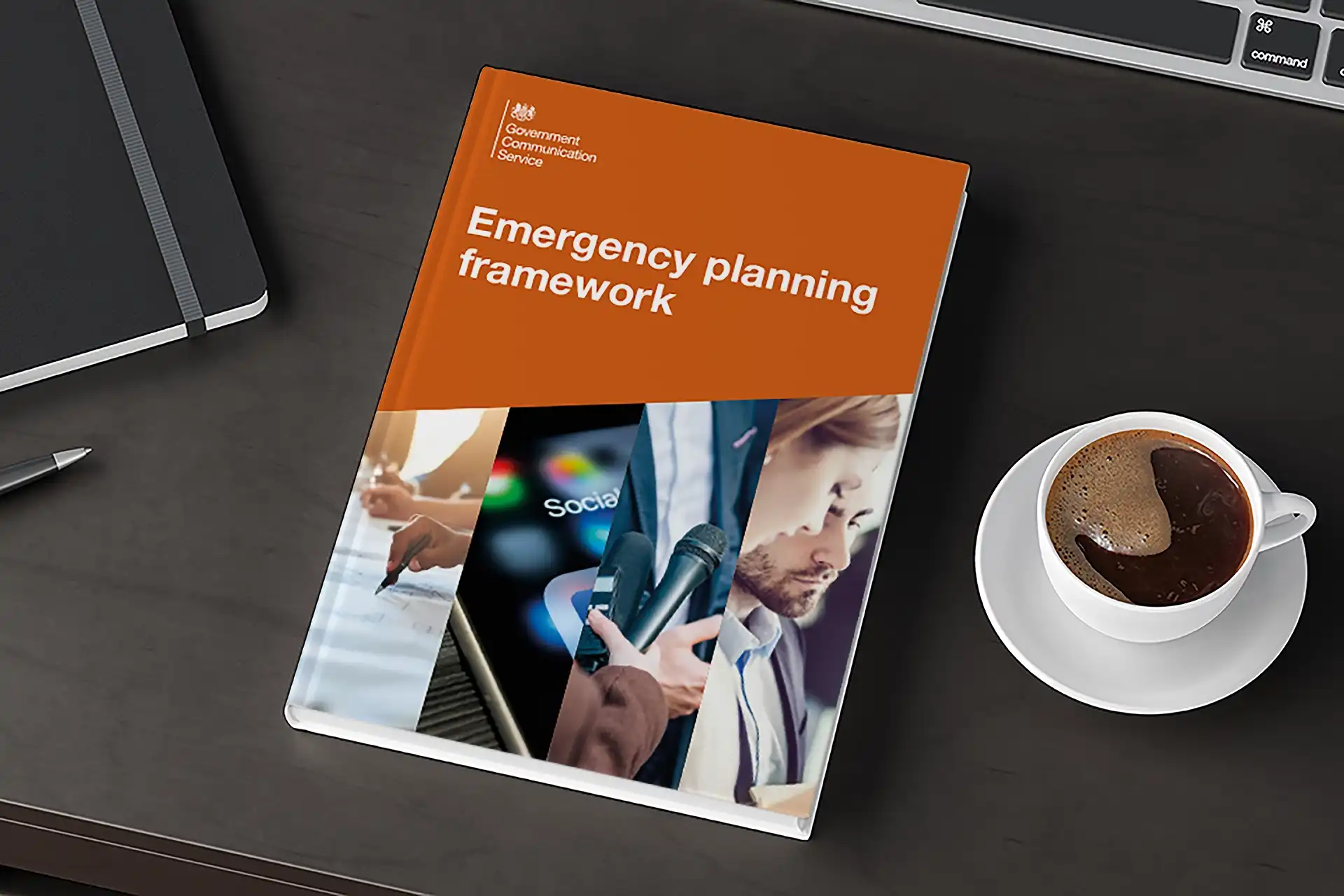
Emergency Planning Framework (PRIMER)
PRIMER provides a framework for crisis communications.

Emergency Preparedness Guidance
Guidance on part 1 of the Civil Contingencies Act 2004, its associated regulations and non-statutory arrangements.
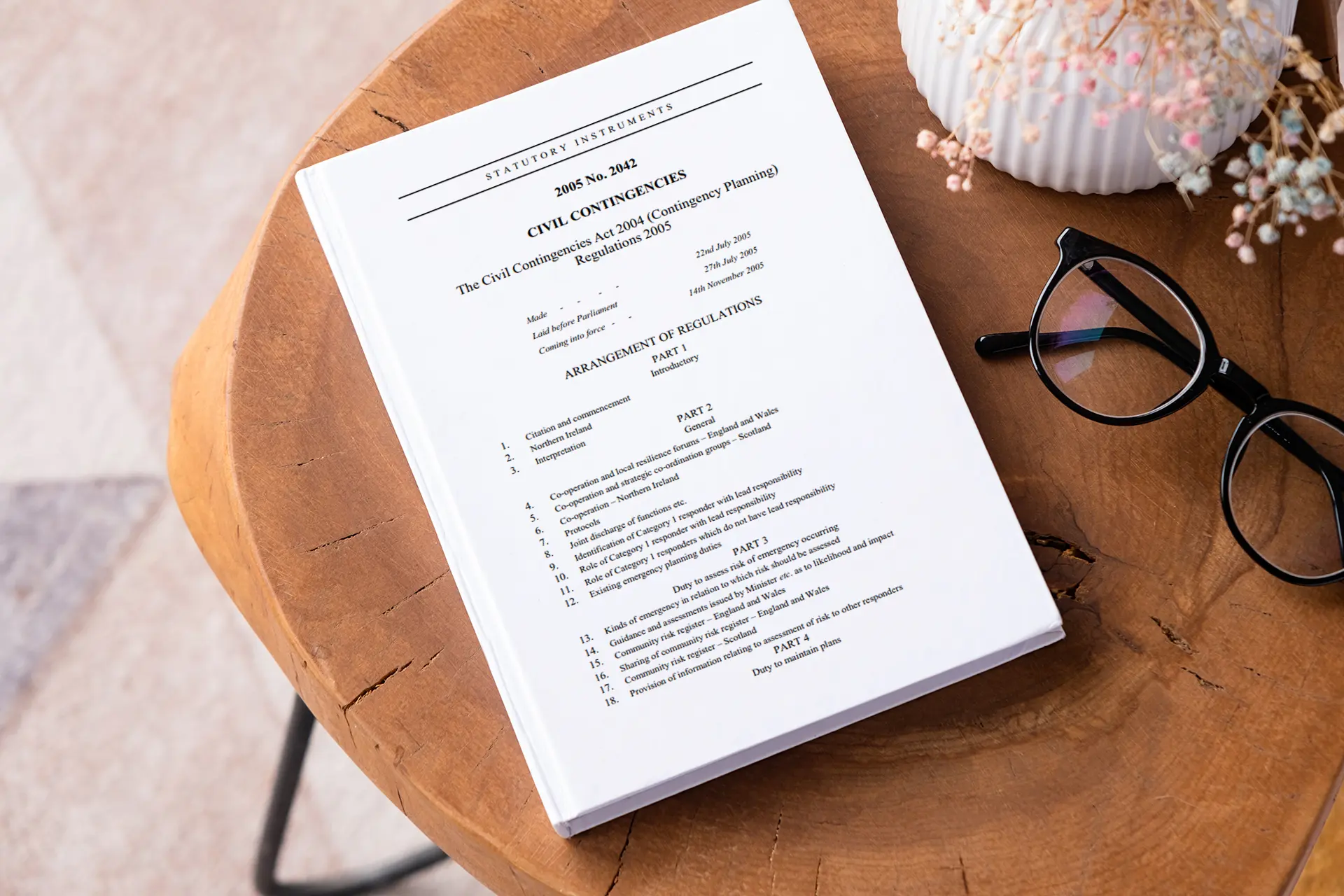
Civil Contingencies Act 2004 (Contingency Planning) Regulations 2005
The Civil Contingencies Act (2004) Regulations (2005) describe the extent of the duties imposed on organisations under the Act, and the manner in which those duties are to be performed.
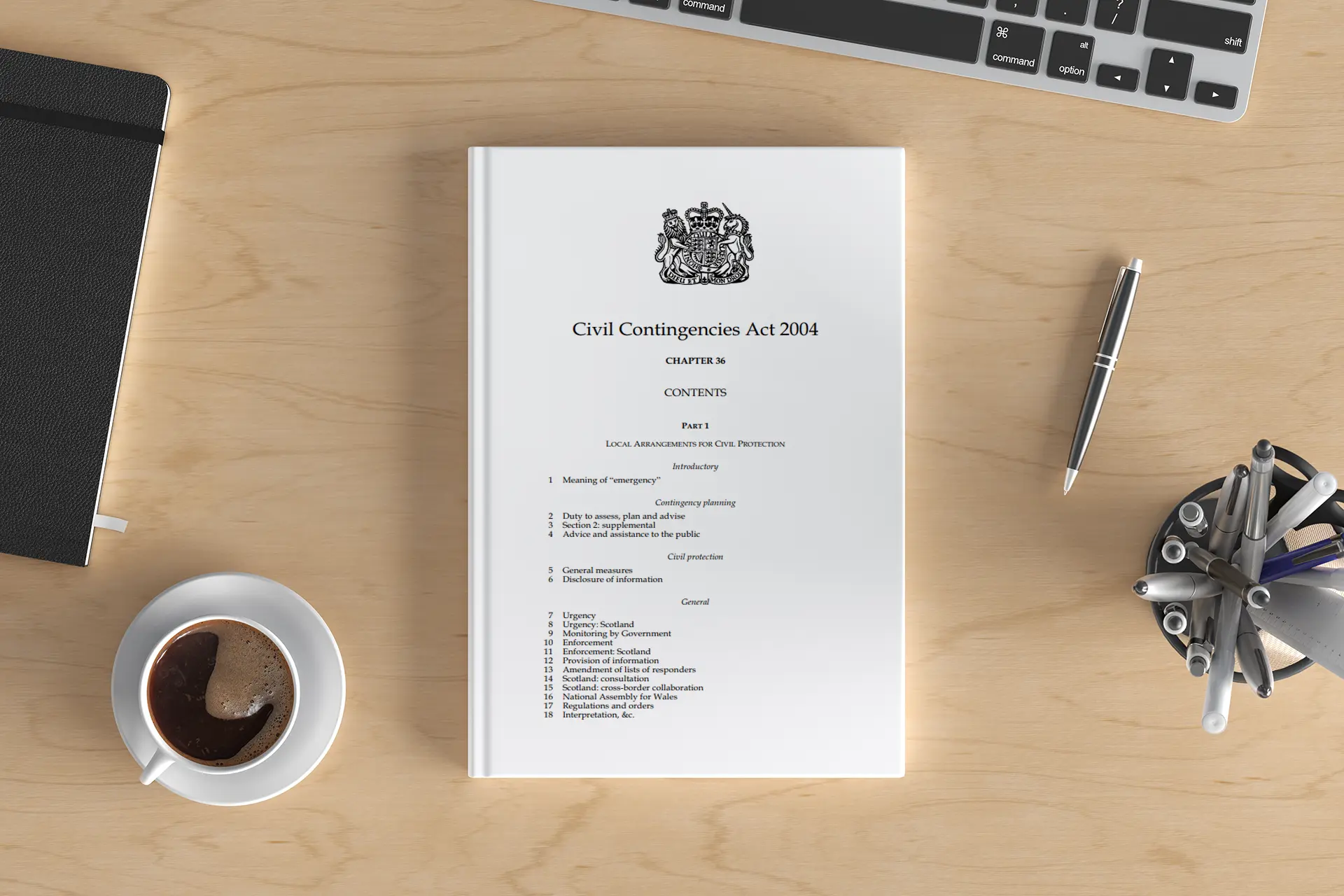
Civil Contingencies Act
The Civil Contingencies Act 2004 (CCA), and accompanying non-legislative measures, delivers a single framework for civil protection in the UK.